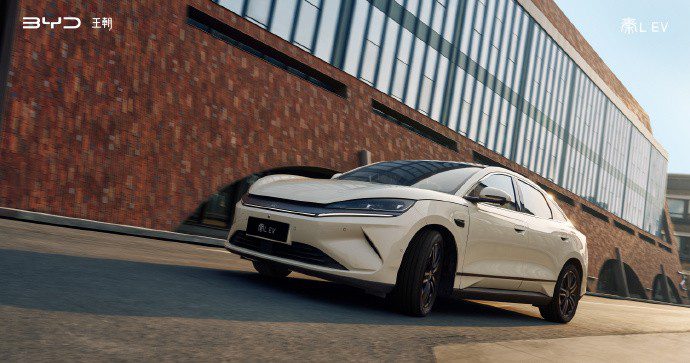Sales of new battery electric vehicles (BEVs) in the United Kingdom and Germany continue to grow, but while Germany has maintained strong growth coming out of the first six months of the year, the UK saw sluggish growth in July.
The UK and Germany normally take a few extra days to collate their new car registration numbers, and their data comes after it was revealed that Norway had set a new record month for EV adoption this past July, of 97.5 per cent, reflecting a wider regional trend that saw higher EV sales in the north and weaker sales in the south.
The UK’s Society of Motor Manufacturers & Traders (SMMT) published its new car registration data on Tuesday, revealing a decline in the overall new car market in July, and the weakest July since 2022.
Despite this, EVs bucked the trend, with a total of 29,825 new BEVs registered in July, accounting for a 21.3 per cent market share for the month and increasing by 9.1 per cent on the 27,335 sold in the same month a year earlier.
However, as the SMMT was quick to point out, this year-over-year growth is “modest” in comparison to the growth seen through the first six months of 2025, which saw the number of new BEVs registered increase by 34.6 per cent over the first six months of 2024.
Plug-in hybrid EVs (PHEVs) saw a much stronger July, with 17,489 new cars hitting the roads, driving away with a market share of 12.5 per cent and increasing by 33 per cent over the 13,149 registered in July 2024.
According to the SMMT, part of the reason behind the sluggish July might be the delay in confirming model eligibility for the government’s new Electric Car Grant (ECG), which will provide a discount of up to £3,750 (around $A7,500).
“Confirming which models qualify for the new EV grant, alongside compelling manufacturer discounts on a huge choice of exciting new vehicles, should send a strong signal to buyers that now is the time to switch,” said Mike Hawes, SMMT CEO.
“That would mean increased demand for the rest of this year and into next, which is good news for the industry, car buyers and our environmental ambitions.”
The news was better in Germany where the Federal Motor Transport Authority, the Kraftfahrt-Bundesamt (KBA), revealed that 48,614 new BEVs were sold in July, accounting for an 18.4 per cent market share and increasing by 58 per cent on the same month in 2024.
A total of 27,197 PHEVs were also registered in Germany in July, accounting for another 10.3 per cent market share and increasing 83.6 per cent over the same month a year ago.
This builds on the strong start to 2025 for the sector, which saw new BEVs registered through the first six months of the year increase by 35.1 per cent over the same period a year earlier, and accounting for a 17.7 per cent market share.
A total of 864,000 electric cars were produced in Germany during the first six months of 2025, a new record. This breaks down to include 635,000 BEVs and 229,000 PHEVs, each a new record for the segment.
In terms of carmakers, neither the SMMT or VBA provide electric-specific data per carmaker, making it difficult to know what BEVs are the most popular. However, both provide overall manufacturer numbers, which shows that American EV giant Tesla is definitely continuing to suffer in Western Europe.
In the UK, Tesla sold only 987 cars in July, a drop of nearly 60 per cent on the 2,462 sold in the same month a year earlier. Through the first seven months of 2025, the numbers look a little better, with 23,708 new cars sold, compared to 25,491 sold in the same period a year earlier, down only 7 per cent.
Compare that with Chinese carmaker BYD, which makes both BEVs and PHEVs, who sold 3,184 new models in July and has increased their year-to-date numbers to 22,574, up an astronomical 514 per cent over the same period a year earlier.
In Germany, only 1,110 new Teslas were sold in July, down 55.1 per cent on the same month in 2024. For the first seven months of the year, 10,000 Teslas have been sold, down 57.8 per cent on the same period a year earlier.
BYD so performed well in Germany, recording 1,126 new cars registered, which is up 390 per cent over July 2024, with year-to-date sales of 7,449, up 420 per cent.
See also: EV sales slump back to 6.9 pct of market after Tesla plunge, and despite BYD surge
Joshua S. Hill is a Melbourne-based journalist who has been writing about climate change, clean technology, and electric vehicles for over 15 years. He has been reporting on electric vehicles and clean technologies for Renew Economy and The Driven since 2012. His preferred mode of transport is his feet.
